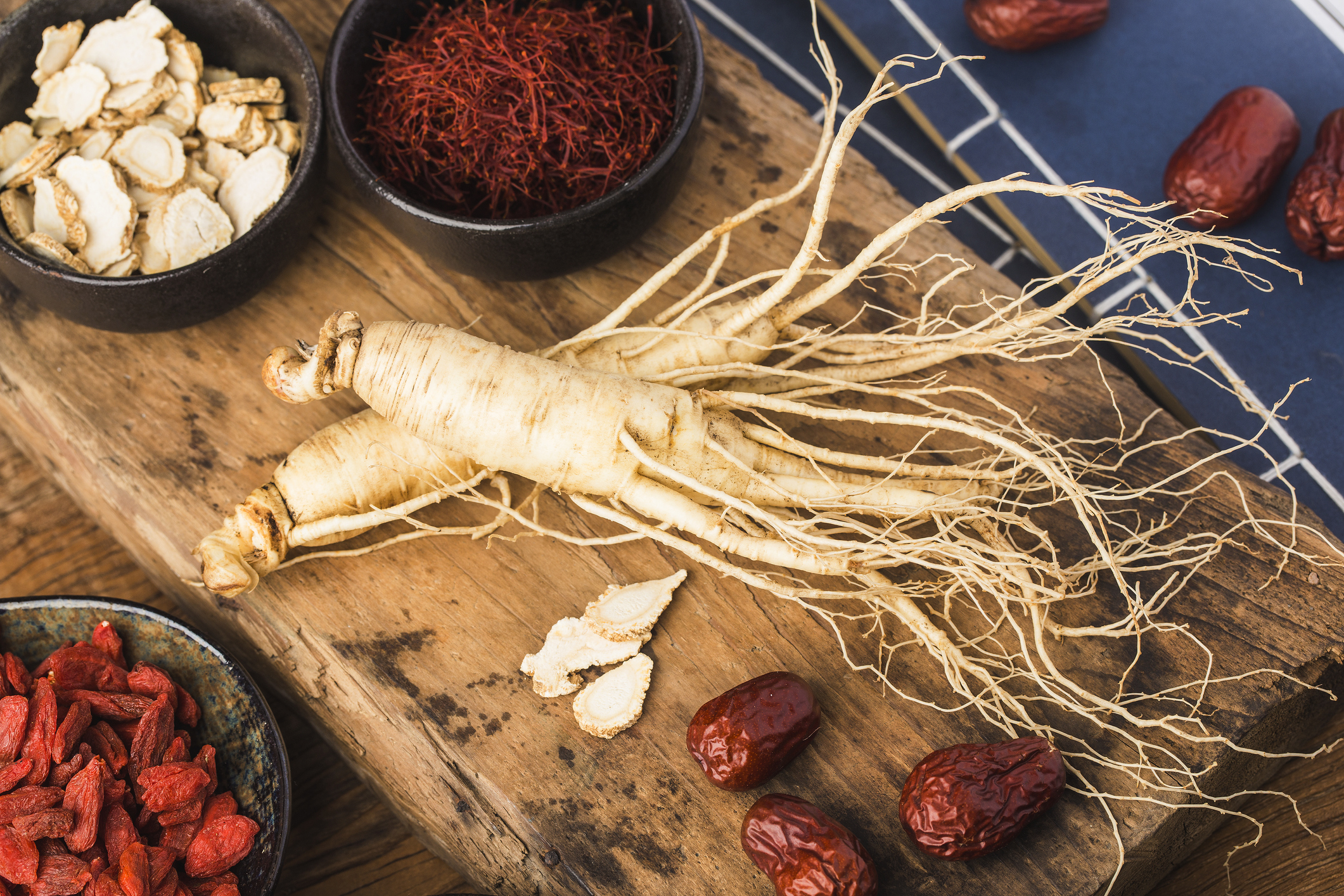Get Easy Health Digest™ in your inbox and don’t miss a thing when you subscribe today. Plus, get the free bonus report, Mother Nature’s Tips, Tricks and Remedies for Cholesterol, Blood Pressure & Blood Sugar as my way of saying welcome to the community!
Red ginseng helps slow aging, boost energy after menopause

Ginseng is an amazing healing herb that’s been used in traditional medicine for centuries.
A cup of ginseng tea in the morning can wake you up better than a cup of coffee.
And, unlike coffee, ginseng (in tea or supplement form) is an anti-viral and anti-inflammatory that stops our stress response cycle, including the immune response that follows stress.
The benefits of this are many, including boosting memory and brain function and preventing cancer.
Ginseng also improves overall metabolic health, making things like heart disease and diabetes far less of a threat.
A recent study points to the ability of one variety, Korean red ginseng, to actually slow down the aging process at the cellular level.
Red ginseng supports mitochondria, slows down aging
Just a few months ago, a group of Korean researchers concluded a study where the subjects were postmenopausal women, ages 46 through 69.
Post-menopausal women are particularly vulnerable to oxidative stress and physical aging, because of their reduced estrogen levels.
The study assessed three factors related to biological aging:
- Total antioxidant status (TAS)
- Health of mitochondrial DNA (mutations in this DNA have been associated with aging).
- Severity of fatigue – each woman was rated on a fatigue severity scale (FSS)
The women in the study were divided randomly into two groups. The experimental group took a tablet containing 2g of Korean red ginseng (KRG), every day for eight weeks, while the control group received a placebo.
Korean red ginseng (KRG) is Korean white ginseng that has been steamed and dried, resulting in an increased concentration of beneficial compounds known as ginsenosides.
After eight weeks, three main effects were evident in the experimental group:
- A statistically significant increase in the mitochondrial DNA copy number (an accepted measure of biological aging)
- A statistically significant increase in total antioxidant status
- A statistically significant decrease in reported fatigue symptom
In other words, taking just 2g of red ginseng per day for eight weeks moved the needle toward healthier aging and increased longevity.
Things to know about ginseng
Red ginseng does more than slow down aging. It’s been found to block a protein that causes the spread of lung cancer. It also can fend off infection by the influenza A virus.
Ginseng is an adaptogenic herb, which means it helps the body adapt to almost any adverse situation, and by doing this it also stops chronic inflammation in its tracks, helping with everything from memory and brain function to metabolic health.
Ginseng is available as supplements, extracts or tea.
Just be aware that ginseng is potent and can interact with some medications, particularly blood thinners, antidepressants, antipsychotics, morphine and some diabetic medications. If that’s the case, you don’t have to miss out on energizing your mitochondria…
Another option is pyrroloquinoline quinone (PQQ), a powerful antioxidant that’s considered a “longevity” nutrient because it lowers the risk of age-related disease by improving the function of the mitochondria. In fact, PQQ may do more than improve the function of mitochondria — it may actually replenish mitochondria, which begin to dwindle in number as we age.
Editor’s note: Discover how to live a cancer prevention lifestyle — using foods, vitamins, minerals and herbs — as well as little-known therapies allowed in other countries but denied to you by American mainstream medicine. Click here to discover Surviving Cancer! A Comprehensive Guide to Understanding the Causes, Treatments and Big Business Behind Medicine’s Most Frightening Diagnosis!
Sources:
The Effects of Korean Red Ginseng on Biological Aging — Natural Health Research Institute
Immunomodulatory activity of red ginseng against influenza A virus infection — Nutrients












